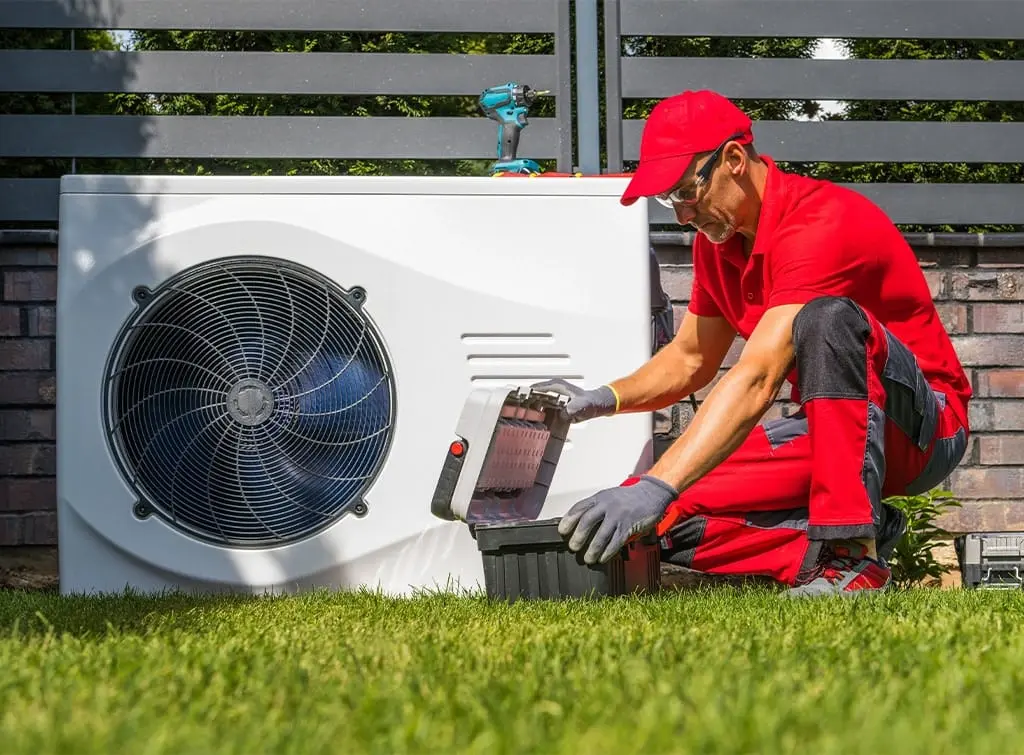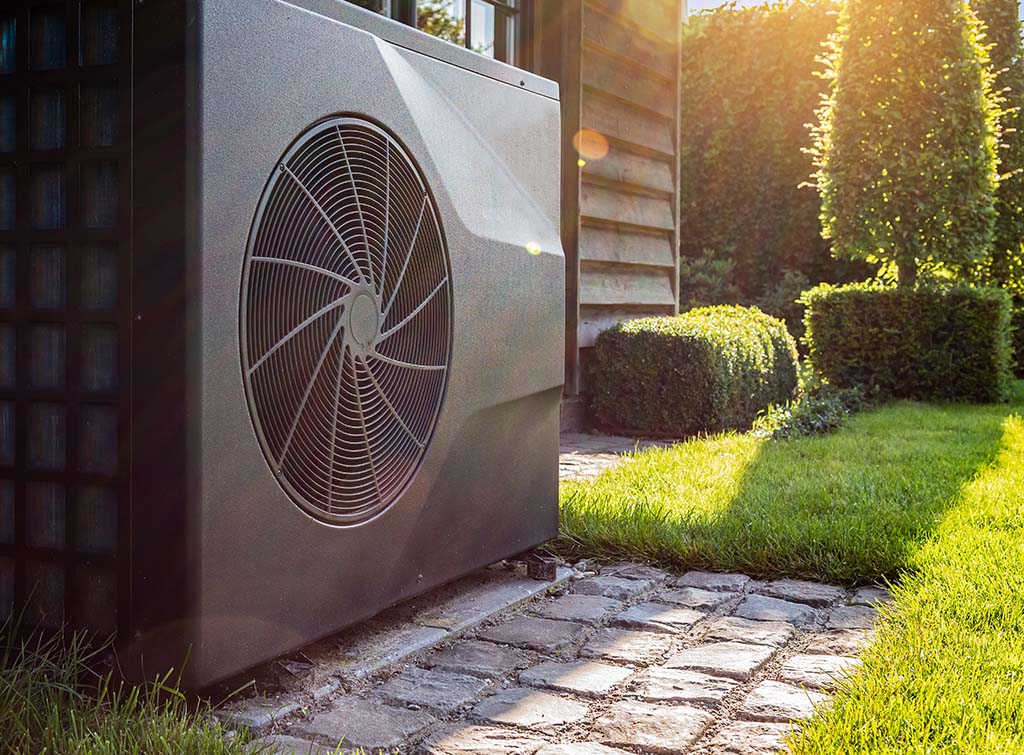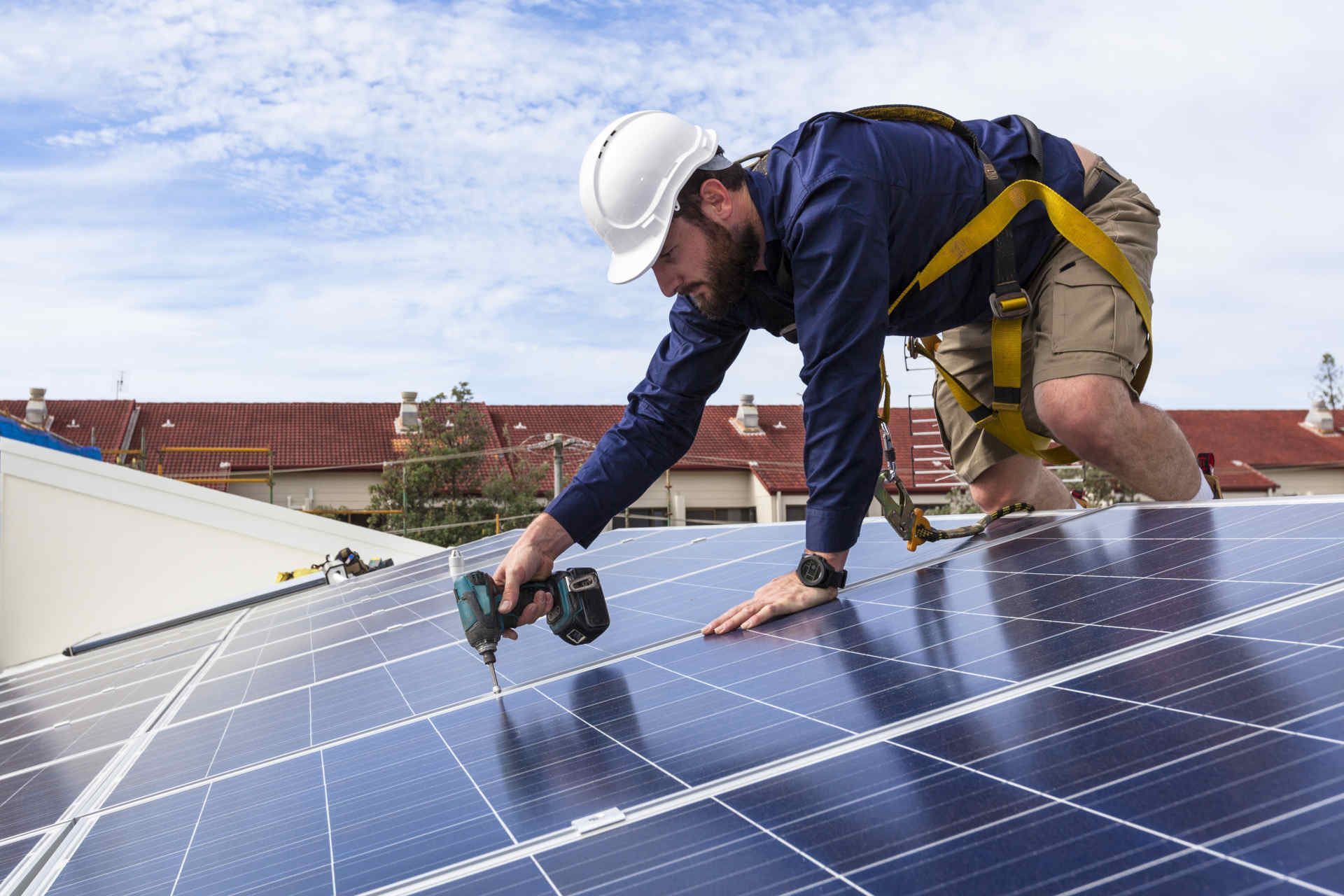Blog>Expert Advice>Are air source heat pumps noisy?
Last updated: 11 October 2024
Are air source heat pumps noisy?
Are air source heat pumps noisy? We explore the noise levels you can expect from this renewable energy heating solution.

When considering a renewable energy heating solution, such as a heat pump, one of the key questions is: Are air source heat pumps noisy?
Heat pumps are popular with UK homeowners due to their environmental benefits, energy efficiency, and low maintenance. They can even add value to your property!
However, before committing to an air source heat pump (ASHP), it's important to understand the potential for noise.
In this post, we outline whether air source heat pumps are noisy, comparative noise levels, and how to reduce ASHP noise.
Air source heat pumps explained
Air source heat pumps work by drawing in heat from the outside air and using it to warm your home.
The heat is pulled in via an external fan unit before being compressed and transferred indoors.
The noise of the external fan is often the focus of homeowners' concerns when planning for a heat pump.
Therefore understanding how air source heat pump noise levels compare is crucial when deciding if this is the right system for you.

How noisy are air source heat pumps?
Generally speaking, air source heat pumps are not excessively noisy. You're unlikely to be disturbed by the sound of the indoor unit.
However, air source heat pumps do produce more sound than ground source heat pumps due to their external fans.
The average noise level of an ASHP ranges between 40-60dB, depending on the make and model of the unit you choose
The noise levels of a ground source heat pump are typically between 40-42dB
How noticeable the sound is will depend on where the external fan unit is located, the time of day, and your home's surroundings.
Comparative noise levels
To put these figures into perspective, here's how these figures compare to other common sounds:
Whispering: 20-30dB
Fridge: 40-50dB
Washing machine: 50-75dB
Dishwasher (switched on and running a cycle): 60dB
Normal conversation: 60-70dB
Compared to other household sounds, air source heat pump noise is relatively low.
Outdoor noise levels
The main source of noise from an air source heat pump is from the fan located outside your home.
Naturally, homeowners can be concerned whether this will disturb the peace of the outdoors or upset neighbours.
However, a professional installer will ensure that compliance with the legal requirements is met:
The legal noise limit for an ASHP in operation is 42dB when measured from the closest neighbouring property
Legally, there must be a one metre distance between a heat pump and neighbouring boundaries
Air source heat pump costs in the UK [year]
If you’re looking for a clean way to heat your home while saving money on your energy bills, then an air source heat pump could be for you. Keep reading to find out more about the average air source heat pump cost in the UK.
How to reduce air source heat pump noise
If your neighbours are concerned about how noisy your air source heat pump will be, the good news is, with proper installation, this is rarely an issue.
A certified installer will ensure optimal placement to minimise sound for both you and your neighbours, away from shared walls, windows, and patios. They can also use anti-vibration mounts to reduce mechanical vibration noise.
In addition, many air source heat pumps nowadays have noise reduction features including insulated casing around the compressor, rubber feet, and low-sound modes.
If your neighbours are in close proximity to your property, it's worth comparing the decibel levels of different models to select the quietest air source heat pump available.
You may also wish to look into the possibility of soundproof fencing or plants to block and absorb the noise.
See the tradespeople we've checked and recommend for your job
What can cause a noisy heat pump?
Modern air source heat pumps are designed to run efficiently and quietly, but there are times when they can be louder than expected. This can be due to several factors including:
Colder outside temperatures: Your heat pump will have to work harder in colder temperatures, causing the fan to spin faster, generating more noise
Installation issues: Incorrect mounting or placing the unit too close to the wall can cause vibrations and amplify noise
Problems with the fan: Wear and tear or an obstruction in the fan could create more noise than normal
Worn out components: A heat pump's components can become worn over time, increasing noise levels
Regular servicing will help to identify and fix any minor issues or repairs before they become more of a problem.
Contact or pay a trade through Checkatrade and you’re covered by our 12-month guarantee of up to £1,000*

Find a heat pump installation expert near you
An air source heat pump is a good investment to help lower your home's carbon footprint and reduce your energy bills.
An MCS-accredited installer will ensure your heat pump is installed professionally and in compliance with UK laws on noise levels.
Search your postcode to find top-rated professionals in your area.
See the tradespeople we've checked and recommend for your job
FAQs
Are heat pumps noisy for neighbours?
In most cases, air source heat pumps are not noisy enough to disturb neighbours. Modern units are designed to be quieter and UK laws are in place to ensure an ASHP in operation does not exceed 42dB when measured from the closest neighbouring property. For comparison, a fridge is between 40-50dB. In addition, legally, there must be a one metre distance between a heat pump and a neighbouring boundary.
Why is my air source heat pump so noisy?
If your ASHP is noisier than usual it could be due to colder outside temperatures (and therefore the fan is working harder), debris obstructing the fan, installation issues, or worn-out components.
What is the noise level of air source heat pumps?
Air source heat pumps range in noise levels between 40-60dB depending on the make, model, and conditions.
How do you soundproof an air source heat pump?
Modern air source heat pumps are designed to be quieter with noise reduction features such as insulated casing and low-sound modes. However, there are further steps you can take to soundproof the unit.
Firstly, make sure it's installed away from windows. Use anti-vibration mounts, or install soundproof fencing. Regular servicing will also help to ensure the unit runs smoothly, avoiding unnecessary excess noise.
See the tradespeople we've checked and recommend for your job



